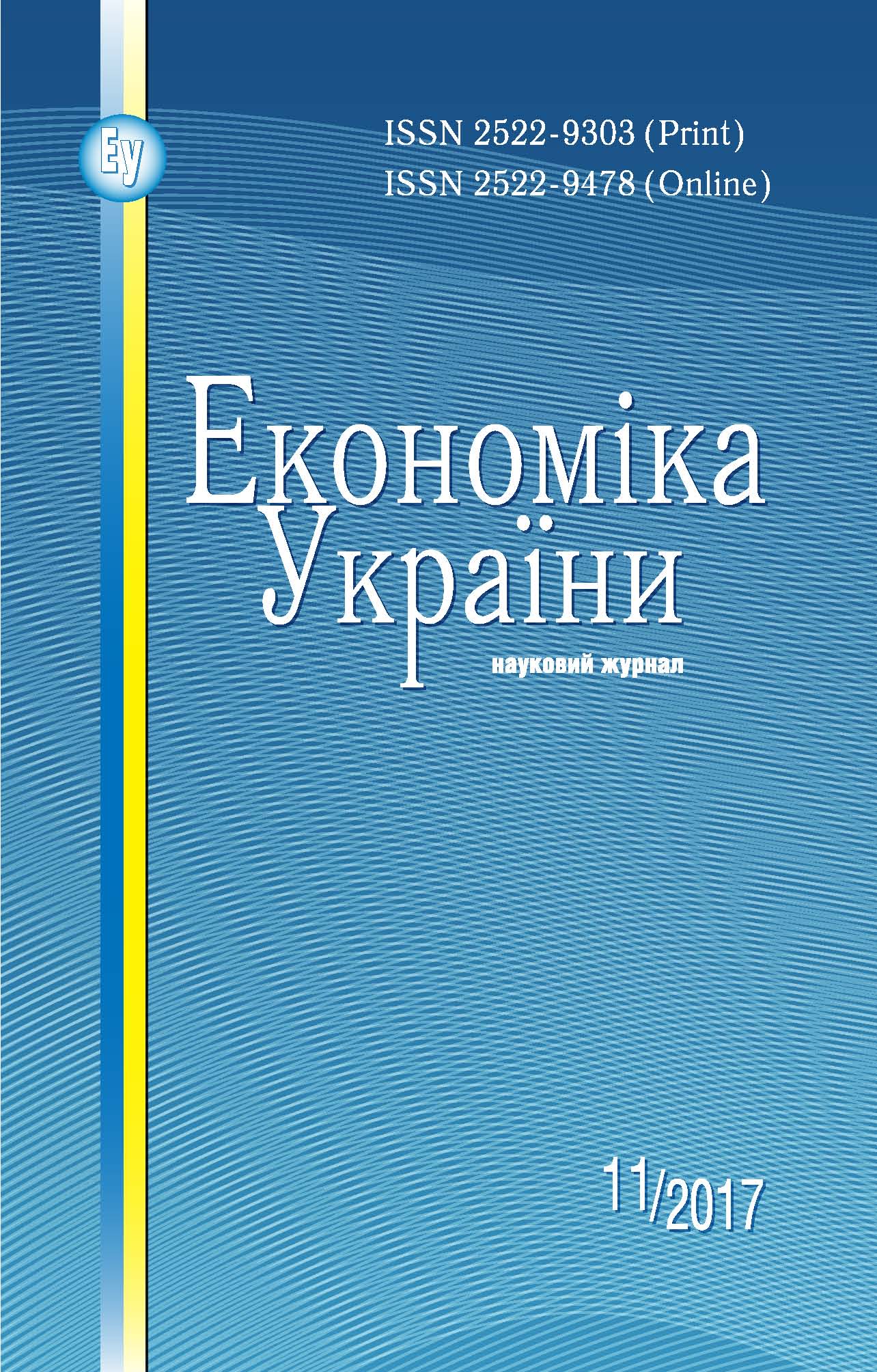THE WASHINGTON CONSENSUS: THEN AND NOW
Keywords:
the Washington consensus; “first generation reforms”; “second generation reforms”; small, commodity economy; commodity conjuncture; technological development; modernization of the economyAbstract
Despite the third decade of market reforms, their successes in the Ukrainian economy remain quite modest. This unwittingly raises questions about quality of national transformations and possible
directions of their improvement. Since the international institutions led by the IMF are tailoring the financial “adjustment” of the reforming countries, there is an obvious interest in their definition of an effective economic policy, which prior to the global crisis of 2008–2009 was seen as the Washington consensus.
The initial popularity of the Washington consensus began to melt in the late 1990s
after the Asian crisis and the disappointing outcomes of neoliberal reforms in a number of
emerging markets and post-soviet economies. These reputational losses turned out to be
all the more serious that the Washington consensus did not stand still and managed to offer its improved version – “second generation reforms”.
However, their shortcomings, in turn, were revealed during the global crisis of 2008–
2009: both in its unpredictability and in the methods of overcoming, when industrialized countries practically abandoned almost all the postulates of the Washington consensus, giving preference to alternative Keynesian instruments.
In the case of small, commodity economies, the Washington consensus does not take
into account their rigid link to global cycles of raw material conjuncture, the overcoming
of which requires technological development and modernization of national industries.
However, these tasks lie outside the framework of the reforms of the “first” and “second”
generations, leaving open the question on macro-financial stability of such economies.
This conclusion is all the more fundamental that despite the changing rhetoric – since the term “the Washington consensus” has practically disappeared from the official lexicon of international organizations – their stabilization programs continue to conceptually coincide with the set of “second generation reforms”.
References
Soros G. Krizis Mirovogo Kapitalizma: Otkrytoe Obshchestvo v Opasnosti [The Crisis
of Global Capitalism: Open Society Endangered], available at: polbu.ru/soros_crisis/ch03_all.html [in Russian].
Williamson J. A short history of the Washington consensus. Paper commissioned
by Fundacion CIDOB for a conference “From the Washington сonsensus towards a new
global governance”, Barcelona, September 24–25, 2004. Washington, D.C., Institute for
International Economics, available at: piie.com/publications/papers/williamson0904-2.pdf.
Williamson J. What Washington Means by Policy Reform. Chapter 2 in Latin
American Adjustment: How Much Has Happened? J. Williamson (Еd.). Washington,
D.C., Institute for International Economics, 1990, available at: piie.com/
commentary/speeches-papers/what-washington-means-policy-reform.
Williamson J. The Washington consensus as policy prescription for development.
A lecture in the series “Practitioners of Development” delivered at the World Bank on
January 13, 2004. Washington, D.C., Institute for International Economics, available at:
piie.com/publications/papers/williamson0204.pdf.
Stiglitz J.E. The post Washingon consensus consensus. The initiative for policy
dialogue, available at: policydialogue.org/files/events/Stiglitz_Post_Washington_
Consensus_Paper.pdf.
Navia P., Velasco A. The Politics of Second-Generation Reforms. Chapter 10 in
After the Washington Consensus. Washington, D.C., Institute for International
Economics, 2003, pp. 265–363, available at: piie.com/publications/chapters_
preview/350/10iie3470.pdf.
Stiglitz J. Globalization and Its Discontents. London, Penguin Books, 2002, p. 53.
Rodrik D. Goodbye Washington consensus, hello Washington confusion? A review
of the World Bank’s Economic Growth in the 1990s: Learning from a decade of reform.
Journal of Economic Literature, 2006 December, Vol. XLIV, pp. 973–987, available at:
citeseerx.ist.psu.edu/viewdoc/download?doi=10.1.1.471.2094&rep=rep1&
type=pdf.
Marangos J. The evolution of the anti-Washington consensus debate: from ‘post-
Washington consensus’ to ‘after the Washington consensus’. Competition & Change, 2008,
Vol. 12, No. 3, September, pp. 227–244, available at: johnmarangos.eu/wp-content/uploads/2014/10/51-2008-Competition%20&%20Change.pdf.
Williamson J. What should the Bank think about the Washington consensus.
Background paper to the World Bank’s World Development Report 2000, July 1999,
available at: piie.com/commentary/speeches-papers/what-should-world-bank-
think-about-washington-consensus?ResearchID=351.
Downloads
Published
How to Cite
Issue
Section
License
Copyright (c) 2024 Economy of Ukraine

This work is licensed under a Creative Commons Attribution-NonCommercial-NoDerivatives 4.0 International License.



